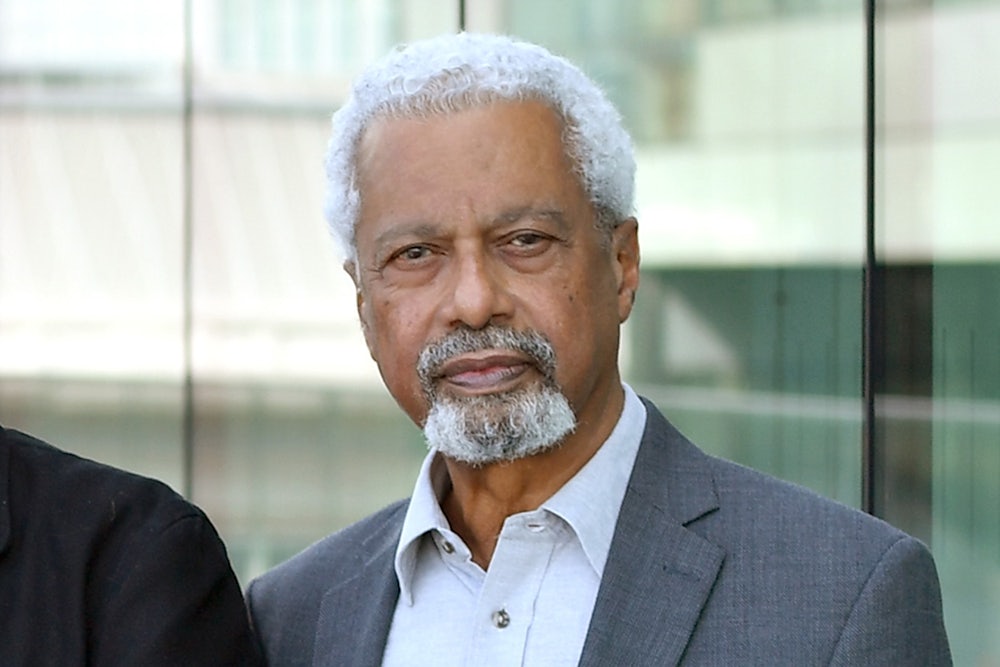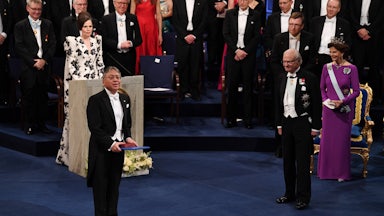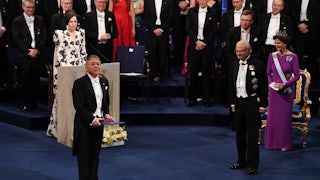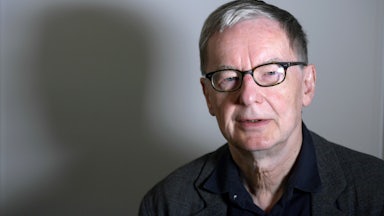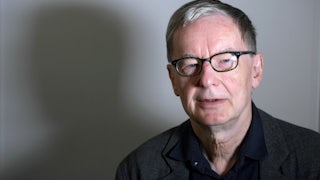It finally happened. After years of getting my Nobel Prize in literature predictions wrong—and, in some cases, missing the mark in spectacular fashion—I got one right. On Thursday morning, the Swedish Academy announced that Abdulrazak Gurnah, the Zanzibari British novelist and literary critic, had won the Nobel Prize for “his uncompromising and compassionate penetration of the effects of colonialism and the fate of the refugee in the gulf between cultures and continents.”
OK, I’m stretching the truth a hair: I ended my annual predictions piece by giving “someone not mentioned on this list from a country not mentioned on this list” 2–1 odds of winning the Nobel Prize. Gurnah wasn’t mentioned; neither was Tanzania (until Zanzibar merged with Tanganyika in 1964, when Gurnah was 16), therefore I correctly predicted the winner.* This may be a technicality, but if you have my lousy track record you must take those small victories whenever they present themselves.
No one had Gurnah on their radar. For the last six years, I have used several oddsmakers—most prominently the British sports book Ladbrokes—as a source for my annual previews. To the best of my knowledge, Gurnah has never appeared as a contender, even with odds of 100–1. He is, in some cases, the reverse of 2017’s Nobel laureate, Kazuo Ishiguro, another writer who emigrated to England at a young age. Ishiguro’s name also never appeared in Nobel speculation, largely because he was believed to be too popular—two of his books have been turned into Academy Award–nominated films. Gurnah, as it turns out, was too obscure.
A recently retired professor of English literature at the University of Kent, Gurnah was perhaps best known for his work as a critic, which is another reason he was ignored. Ironically, much of his work has focused on writers who are themselves frequent subjects of Nobel Prize speculation: He wrote the introduction to the Penguin Classics edition of Ngũgĩ wa Thiong’o’s A Grain of Wheat and is the editor of The Cambridge Companion to Salman Rushdie. (This version of the Swedish Academy, which awards the Nobel Prize, is particularly humorless—even by Swedish standards—but this may very well be its idea of a joke.)
Gurnah’s own novels are largely unknown outside of the U.K. and aren’t particularly well known inside of it. While American publishers have put out his books in the past, the print rights to nearly all of his titles have reverted; his books have, per the journalist Jane Friedman, sold only 3,000 copies in the United States—total. Given the ongoing supply-chain issues wrought by the pandemic, it might be quite a while before bookstores will be able to restock his titles for newly curious readers.
Born in Zanzibar, Gurnah moved to the U.K. as a refugee after a military coup in 1964 that led to the persecution of citizens of Arabic origin. He has lived in Britain ever since and has written exclusively in English, his second language. (Gurnah is a native speaker of Swahili.) His first novel, Memory of Departure, a coming-of-age novel that takes place amid a failed uprising, was published in 1987. He has written nine books since, nearly all of which explore themes of memory, migration, and the legacy of colonialism. His best-known, 1994’s Paradise, was highlighted by the Nobel Prize committee and shortlisted for the Booker Prize when it came out.
Gurnah is the first writer from Africa to win the Nobel Prize in literature in more than a decade and the first nonwhite writer from Africa to win in nearly 30 years. He is only the sixth writer from Africa to win overall. He is also the second Black African writer to win, following the Nigerian playwright Wole Soyinka, who won in 1986; he is the first Black writer to win since Toni Morrison was awarded the prize in 1993.
Many, myself included, had tipped 2021 as a year in which the Nobel Prize in Literature Committee would honor a Black African writer. Still, Gurnah was a surprising choice. Ngũgĩ wa Thiong’o, the most influential and, arguably, important living African writer, has long been considered a front-runner for the Nobel Prize. He may effectively be out of the running, now that Gurnah has won the award—the fact that Gurnah has written extensively about Ngũgĩ’s work suggests a troll on par with what the committee did to Philip Roth near the end of his life. Similarly, a number of African writers who are far more prominent than Gurnah haven’t yet won the prize, including Boris Diop, Nuruddin Farah, and Mia Couto. Five of the last six African laureates have, like Gurnah, written in English, with the Egyptian novelist Naguib Mahfouz the one exception.
There is, perhaps, a political dimension to the committee’s thinking, given that much of Gurnah’s writing focuses on migration and that he came to Britain as a refugee. Asked directly about this after the announcement, committee Chair Anders Olsson demurred, saying that the prize was not awarded for political reasons and that “the phenomenon of exile and migration has been there for many, many years.” He suggested, moreover, that the Nobel Prize committee had been following his work since the 1980s—a somewhat surprising claim, given that Gurnah only published two little-known novels at the tail end of that decade—before adding that he didn’t think the migrant crisis “has had any immediate impact on our decision.” Still, the Nobel Prize committee is known for making political statements, sub rosa and otherwise, with its choices.
This is the fourth Nobel Prize in literature that has been awarded since the prize was delayed for a year amid a gambling and sexual assault scandal. The Nobel committee’s old guard won out in the subsequent power struggle, pushing out the Swedish Academy’s first female permanent secretary, who had no role in the scandal, in the process. The four writers who have won the Nobel Prize since—Olga Tokarczuk, Peter Handke, Louise Glück, and now Gurnah—have all been fairly traditional Nobel laureates: serious, unimpeachably literary, internationally obscure. Of the four, the most famous is arguably Handke, who is hardly a household name. (He is possibly best known for giving a short speech at Slobodon Milošević’s funeral.)
After years of envelope-pushing—awarding Svetlana Alexievich, primarily a nonfiction writer who often works in oral histories; Bob Dylan, a singer-songwriter and one of the most famous people of the last 60 years; and Kazuo Ishiguro, a literary superstar—the Nobel Prize in literature has settled back into what it has been for much of its history: an unpredictable prize that selects its often obscure laureates for reasons that aren’t always entirely clear. This is, in my opinion, the best use of the Nobel Prize: as a way of highlighting neglected but worthy writers.
In the past, these neglected writers have almost exclusively been European. (The closest recent laureate to Gurnah is probably Jean-Marie Gustave Le Clézio, the French-Mauritian novelist who was more or less unknown outside of France when he was awarded the prize in 2008.) Gurnah, of course, exists in a nebulous place, having lived in England for most of his life. Nevertheless, the Nobel Prize has, for most of its history, struggled to live up to its mandate as an award for global literature. By awarding Gurnah, the committee is making a small step toward finally living up to that worthy goal.
* This article originally misidentified the origin of Tanzania.
